La Carreta Restaurant in East Los Angeles is one of former Councilman Gil Cedillo's favorite places to eat. The staff knows his order, and they treat him like family. He is a regular. That’s where he recently met with CALÓ News to talk about his political career and his plans for the future.
Cedillo was born in Barstow in San Bernardino County but grew up in Boyle Heights, where he calls home. He attended Roosevelt High School, where he played quarterback on the football team. Little did he know that a Chicano Moratorium march against the Vietnam War in 1970 would lead 16-year-old Cedillo on his quest to get involved in politics and fight for social justice.
Many years later, he was representing different areas of Southern California in the Assembly, the Senate, and then the Los Angeles City Council. Cedillo is best known for fighting tooth and nail for the passage of driver’s licenses for undocumented immigrants in California. Another milestone was the approval of the California Dream Act, a set of two laws that include public and private funding to finance college tuition for undocumented students.
Cedillo said his work has been associated with the people he has represented, mainly the Latino and immigrant communities, and he’s proud of it.
The leaked audio
In 2022, a leaked audio scandal shook Los Angeles City Hall.

When a secret recording of a meeting between Cedillo, former Los Angeles City Council President Nury Martinez, Councilmember Kevin de León and Los Angeles County Federation of Labor President Ron Herrera–who resigned in the aftermath–revealed racist comments made against other people of color, the repercussion in local politics were immediate and are still playing out today.
Martinez and Herrera resigned, while Cedillo lost his reelection. De León is currently fighting for his seat against Ysabel Jurado, a candidate who was also secretly recorded recently.
But Cedillo maintains his posture that he did not do anything wrong.
“These are not racist tapes. These are illegal tapes,” highlighted Cedillo, stating that they were illegally recorded while he was having a conversation with then Council President Nury Martinez, Councilman Kevin de Leon and Los Angeles County Federation of Labor President Ron Herrera.
The conversation was mainly about the creation of new council district boundaries, while also including comments about Indigenous Mexicans, Oaxacans, Black and LGBTQ+ people, as well as Councilman Mike Bonin’s family.
Cedillo said it was not done with bad intentions.
“This is how we speak in Spanish… The meaning was lost in translation,” he said. “I’m prieto (dark skin), this is how we speak.”
Under California Law, all parties must agree when recording a private conversation or a phone call, otherwise there could be criminal and/or civil penalties.
While prosecutors agreed that a crime was committed by illegally recording the conversation, neither city nor county attorneys filed charges against anyone due to insufficient evidence. There is a civil lawsuit pending.
“This scandal has been huge, but I’ve lived a remarkable life with a lot of ups and downs,” said Cedillo.
The longest and hardest battle
Cedillo said his biggest and most difficult battle was the passing of his wife due to cancer. In 1996 he was working as the CEO of a union and due to disagreements between him and the board, he was let go. After helping secure millions of dollars in federal funds for the healthcare system, he was left without unemployment or health insurance. Around that time, his wife, Ruby Oliva Cedillo, was diagnosed with breast cancer. Cedillo and his wife relied on community clinics for health services and joined the welfare office seeking financial help.
Although it was difficult, he recovered, and in 1998, he won a special election for the State Assembly. But at the beginning of 2002, he had to drop everything to return to his wife.
She was at the end of her life. The breast cancer had metastasized to her brain, and Cedillo couldn’t bear the idea of being away from her and their son.
“The change was really hard, trying to lift her, trying to bathe her. It was really sad,” he recalled. “She forgot things.”
But even on her deathbed, Ruby, a community activist, made Cedillo promise her two things; that he would go on in life and find another wife and he would fight for the licenses for undocumented immigrants. While it was a very difficult promise to make, Cedillo accepted it.
Ruby Cedillo died on June 10, 2002.
Years of fighting for one bill
Cedillo never forgot his promise to his wife and his pending work with the immigrant community. He needed to give them their licenses.
“Before she died she told me, ‘You have to do this because you remember when we were little how scared we would be when police would stop our family,’” she told him.
She reminded him he was good at many things, but he had to focus. It was not easy, and it would take time. Cedillo succeeded on his ninth attempt after presenting it to three California governors: Gray Davis, Arnold Schwarzenegger , and Jerry Brown. Finally, in 2013, Governor Brown signed AB 60 into law, and it took effect in January 2015.
By 2023, the Department of Motor Vehicles (DMV) stated that over a million driver’s licenses had been issued under the AB 60 law.
Cedillo continued with a successful career in the Assembly, Senate, Assembly again, and then city positions.
His legacy
Cedillo said he is very happy with his life at age 70. He is currently working as a senior advisor for AltaMed Health Services and with CASA 0101 in Boyle Heights.
“I’m still very busy, but now I get to do the things I like. I go to the theater, I like music, so I’m beginning to carve out a type of personal life,” he said. “I’m appreciating more the privacy, more stability and certainty.”
Cedillo is proud of the 40 years of public service. He said he won 16 of 18 elections representing the Latino community.
“My legacy is tied to their resilience, their hard work, their hopes and aspirations,” said Cedillo. “I’m not an immigrant. I’m third-generation Mexican-American, but I’ve learned so much from the immigrant community.”

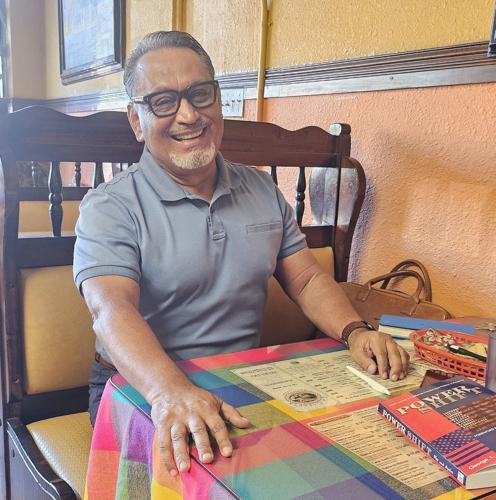
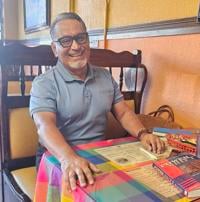
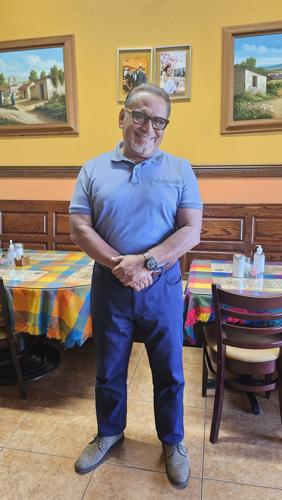
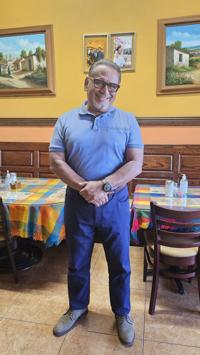



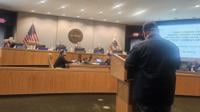

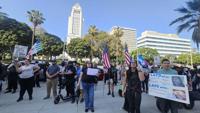

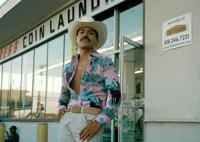
(0) comments
Welcome to the discussion.
Log In
Keep it Clean. Please avoid obscene, vulgar, lewd, racist or sexually-oriented language.
PLEASE TURN OFF YOUR CAPS LOCK.
Don't Threaten. Threats of harming another person will not be tolerated.
Be Truthful. Don't knowingly lie about anyone or anything.
Be Nice. No racism, sexism or any sort of -ism that is degrading to another person.
Be Proactive. Use the 'Report' link on each comment to let us know of abusive posts.
Share with Us. We'd love to hear eyewitness accounts, the history behind an article.